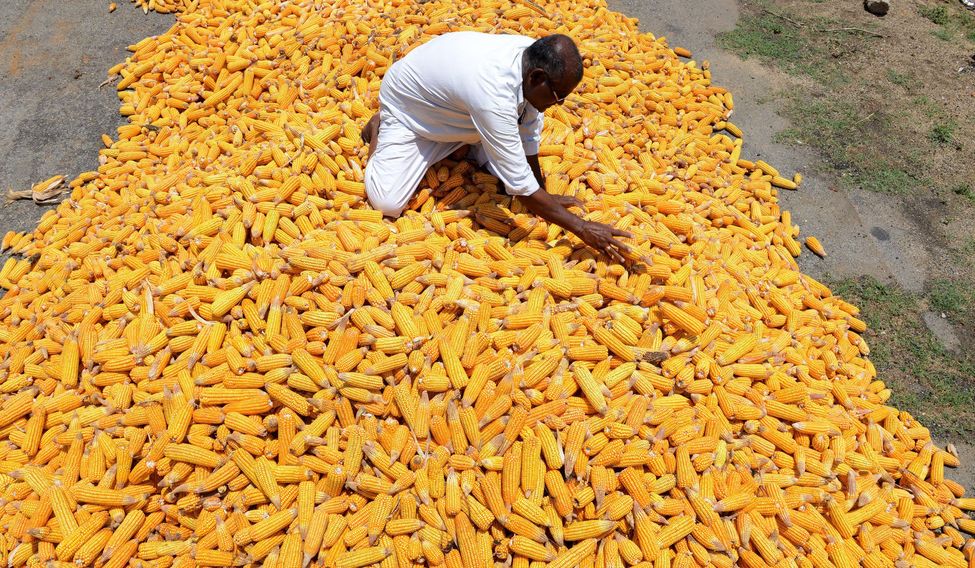Narendra Modi government is going to keep a strong focus on improving living conditions of the rural folk. Starting with this budget, certain policies and practices would be tweaked to offer a larger share for the primary sector.
Farmers and the rural folk are simmering with anger over the Narendra Modi-led NDA government's recent policies. This message has come across as a strong political one, which has been affecting ballot boxes.
"The message from Gujarat was very clear. Even though city dwellers voted for you, the larger vote share went against the BJP government," said R.G. Agarwal, chairman of listed agri-chemical major, Dhanuka Agritech Ltd, and an industry veteran of 25 years.
Agarwal's views are resonated in the North Block corridors, where bureaucrats are busy studying best examples of addressing farmers concerns, as adopted across the states. At NITI Aayog, Ramesh Chand, expert in agriculture, was livid.
"The markets are crashing despite bumper production. Traders are colluding against farmers and causing distress for farmers and more inflation for consumers," says Chand. "The budget will be the right time to disrupt this system," he added.
Though Chand does not share his views on the agriculture sector in the budget, the Aayog has already proposed a number of farmer-centric schemes, which the government could look to adopt to address large scale farmer distress in the country.
Primary among them, is a farmer's loss subsidising scheme, in the lines of Madhya Pradesh government's 'Mukhya Mantri Bhavantar Bhugtan Yojana' – or CM's scheme to pay farmers cost differential from market price of their produce.
The scheme, was rolled out in October last year in the central Indian state, to alleviate distress among soya and pulses farmers. Madhya Pradesh is a major producer of oilseeds and lentils. Prices of both soya and pulses in mandis had taken a hit following good output this year.
An ICRIER study chaired by Ashok Gulati and former food secretary Shiraj Hussain have deduced that farmers are currently earning a negative return of 30.6 per cent for urad (black gram), 25.7 per cent for arhar (pigeon pea) and 13.7 per cent on plantings of soya bean in the country.
The scheme was implemented with partial success in the state as farmers faced problems, on acoount of getting themselves registered with their local mandi boards and providing their Aadhaar for direct cash benefit transfer facility.
Farmers in Madhya Pradesh had also complained about the small amount of their loss covered by the scheme. "I am losing Rs 700 per quintal (100kg) on my soya crop and the Bhavantar scheme compensates a maximum upto Rs 300," said Ratan Barela, a soya farmer in Chhindwara, Madhya Pradesh.
According to finance ministry officials, the government is 'seriously considering to replicate' such a scheme at central level. If implemented in the budget, it would certainly help in fulfilling the Prime Minister's mission of doubling farmers' income by 2022.
Rough estimates of experts peg that the government would have to earmark at least Rs 3,000 crore for such a scheme to take effect, especially given the regularity with which markets for agricultural produce are crashing.
In 2017, producers of at least 23 agricultural crops, have reported to have undergone 'distress sale' of their produce, after the harvest season.
Among other things, the budget could also rephrase the way food policy is looked into in the document. "Instead of looking at food policy from a procurement view, it is possible to look at it from a farmers' income perspective," said S.K. Pattanayak, agriculture secretary, addressing a FICCI forum recently.
Pattanayak was also refering to altering the crop marketing policy, centred around subsidy for paddy and wheat growers, to one that is minimum-price driven for even horticultural crops.
Such a move has so far been resisted by earlier governments, despite similar recommendations being made even by M.S. Swaminathan headed, National Commission of Farmers in its reports from 2004-2006, which aimed at bettering the lives of farmers.
Other than these, Jaitley is also expected to announce special doles to farmers using mechanised tools for farming. Farmers in the north-west province, could see a special Rs 500 crore package, to aid mechanical removal of post-harvest crop stubbles.
An expert committee formed by the National Green Tribunal, too, have already advised the government for similar scheme, to speed up adoption rate of farm machinery in the country.






